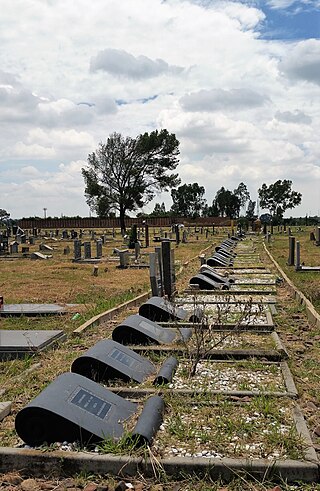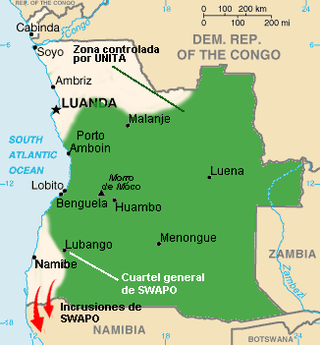
The Sharpeville massacre occurred on 21 March 1960, when police opened fire on a crowd of people who had assembled outside the police station in the township of Sharpeville in the then Transvaal Province of the then Union of South Africa to protest against the pass laws. A crowd of approximately 5,000 people gathered in Sharpeville that day in response to the call made by the Pan-Africanist Congress to leave their pass-books at home and to demand that the police arrest them for contravening the pass laws. The protestors were told that they would be addressed by a government official and they waited outside the police station as more police officers arrived, including senior members of the notorious Security Branch. At 1.30pm, without issuing a warning, the police fired 1,344 rounds into the crowd. For more than fifty years the number of people killed and injured has been based on the police record, which included 249 victims in total, including 29 children, with 69 people killed and 180 injured. More recent research has shown that at least 91 people were killed at Sharpeville and at least 238 people were wounded. Many people were shot in the back as they fled from the police.

General elections were held in South Africa between 26 and 29 April 1994. The elections were the first in which citizens of all races were allowed to take part, and were therefore also the first held with universal suffrage. The election was conducted under the direction of the Independent Electoral Commission (IEC), and marked the culmination of the four-year process that ended apartheid.

Richard Joseph Goldstone is a South African retired judge who served in the Constitutional Court of South Africa from July 1994 to October 2003. He joined the bench as a judge of the Supreme Court of South Africa, first in the Transvaal Provincial Division from 1980 to 1989 and then in the Appellate Division from 1990 to 1994. Before that, he was a commercial lawyer in Johannesburg, where he entered legal practice in 1963 and took silk in 1976.

Roelof Frederik "Pik" Botha, was a South African politician who served as the country's foreign minister in the last years of the apartheid era, the longest-serving in South African history. Known as a liberal within the party, Botha served to present a friendly, conciliatory face on the regime, while criticised internally. He was a leading contender for the leadership of the National Party upon John Vorster's resignation in 1978, but was ultimately not chosen. Staying in the government after the first non-racial general election in 1994, he served under Mandela as Minister of Mineral and Energy Affairs from 1994 to 1996.

The apartheid system in South Africa was ended through a series of bilateral and multi-party negotiations between 1990 and 1993. The negotiations culminated in the passage of a new interim Constitution in 1993, a precursor to the Constitution of 1996; and in South Africa's first non-racial elections in 1994, won by the African National Congress (ANC) liberation movement.

The Bisho massacre occurred on 7 September 1992 in Bisho, in the then nominally independent homeland of Ciskei which is now part of the Eastern Cape in South Africa. Twenty-eight African National Congress supporters and one soldier were shot dead by the Ciskei Defence Force during a protest march when they attempted to enter Bisho to demand the reincorporation of Ciskei into South Africa during the final years of apartheid.
The Boipatong massacre took place on the night of 17 June 1992 in the township of Boipatong, South Africa.
The Agreement among the People's Republic of Angola, the Republic of Cuba, and the Republic of South Africa granted independence to Namibia from South Africa and ended the direct involvement of foreign troops in the Angolan Civil War. The accords were signed on 22 December 1988 at the United Nations Headquarters in New York City by the Foreign Ministers of People's Republic of Angola, Republic of Cuba and Republic of South Africa.
The National Intelligence Service (NIS) was an intelligence agency of the Republic of South Africa that replaced the older Bureau of State Security (BOSS) in 1980. Associated with the Apartheid era in South Africa, it was replaced on 1 January 1995 by the South African Secret Service and the National Intelligence Agency with the passage of the Intelligence Act (1994).

United Nations Security Council resolution 772, adopted unanimously on 17 August 1992, after recalling Resolution 765 (1992) concerning the Boipatong massacre in South Africa and a report from the Secretary-General, the Council authorised Boutros Boutros-Ghali to deploy observers to the country after concerns raised in the report, known as the United Nations Observer Mission in South Africa.

United Nations Security Council resolution 834, adopted unanimously on 1 June 1993, after reaffirming resolutions 696 (1991), 747 (1992), 785 (1992), 793 (1992), 804 (1993), 811 (1993) and 823 (1993), the council indicated its concern at the deteriorating political, military and humanitarian situation in Angola and extended the mandate of the United Nations Angola Verification Mission II for a period of 45 days ending 15 July 1993.

United Nations Security Council resolution 851, adopted unanimously on 15 July 1993, after reaffirming resolutions 696 (1991), 747 (1992), 785 (1992), 793 (1992), 804 (1993), 811 (1993), 823 (1993) and 834 (1993), the Council noted the continuing deterioration of the situation in Angola and extended the mandate of the United Nations Angola Verification Mission II until 15 September 1993, discussing further the peace process in the country.

United Nations Security Council resolution 863, adopted unanimously on 13 September 1993, after reaffirming resolutions 782 (1992), 797 (1992), 818 (1993) and 850 (1993) on the situation in Mozambique, the council discussed the implementation of the Rome General Peace Accords.

United Nations Security Council resolution 890, adopted unanimously on 15 December 1993, after reaffirming resolutions 696 (1991), 747 (1992), 785 (1992), 793 (1992), 804 (1993), 811 (1993), 823 (1993), 834 (1993), 851 (1993) and 864 (1993) on the situation in Angola, the council noted the slight improvements in the country and extended the stationing of the United Nations Angola Verification Mission II until 16 March 1994.

On 14 January 1994, the United Nations Security Council unanimously adopted resolution 894 which discusses various aspects relating to the upcoming South African General Elections. This occurred after the council recalled resolutions 765 (1992) and 772 (1992) on South Africa.

United Nations Security Council resolution 930, adopted unanimously on 27 June 1994, after recalling resolutions 772 (1992) and 894 (1994), the Council noted with satisfaction that a democratic and non-racial government had been established in South Africa, and terminated the United Nations Observer Mission in South Africa (UNOMSA).

United Nations Security Council resolution 1012, adopted unanimously on 28 August 1995, after considering the situation in an African landlocked country, Burundi. The council established an international inquiry over the assassination of President Melchior Ndadaye during a military coup in October 1993.

United Nations Security Council resolution 1049, adopted unanimously on 5 March 1996, after reaffirming Resolution 1040 (1996) concerning Burundi, the Council called for an end to violence in the country and discussed preparations for a conference on security in the African Great Lakes region.

United Nations Security Council resolution 1072, adopted unanimously on 30 August 1996, after reaffirming all resolutions and statements by the President of the Security Council on the civil war in Burundi, the Council discussed efforts for a political settlement to the conflict in the country.
Boipatong is a township in Gauteng, South Africa. It was established in 1955 to house black residents who worked in Vanderbijlpark and Vereeniging.
















